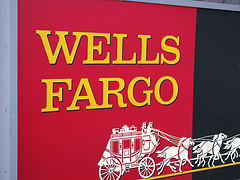Wells Fargo Ignores Homeowners Trying To Make Good On Missed Loan Payments
While it might make sense for lenders would go after homeowners who can pay their mortgage but choose not to, what about those people who missed payments because they were out of work but are now trying to make good on their debt?
That’s the problem facing one California couple profiled by the L.A. Times’ David Lazarus.
The husband and wife homeowners missed five payments between Oct. 2010 and April 2011, during which time the husband struggled to find work.
“It was hard,” the husband tells Lazarus. “We had no money coming in.”
The couple bought the home in 2001 for $280,000. A second mortgage left them with a loan balance of about $375,000. Unfortunately, estimates put the current value of the property at $348,300.
They missed last October’s payment but after the wife landed a new job they were able to pay in November and December.
In January, they applied for a loan modification but were told they didn’t make enough money. Unable to pay, they missed both January and February. They were able to pay again in March, but not in April.
After making the payment in June, the husband scored a new job that should have allowed them to finally get back on track. They once again tried for a loan modification but were told they now made too much money.
And then Wells Fargo wouldn’t accept their June payment and began taking steps toward foreclosure.
The couple, which had started setting aside cash to make up for the missed payments, say they tried numerous times to work out a deal with Wells Fargo but to no avail.
Early last month, they say Wells Fargo promised to tell them exactly how much — including late fees and legal charges — the homeowners owed but that no one from the bank contacted them with this info.
So they turned to Lazarus, who was able to get Wells Fargo to actually look into the couple’s case.
“We’re working with them to keep them in their home,” says a Wells rep, who tells Lazarus that it’s likely that a repayment plan will be established. And if that works out, the foreclosure process will be halted.
“At the end of the day, no bank wants a foreclosed property,” said the rep. “It is not good for homeowners, neighborhoods or communities.”
Jamie Court, president of Consumer Watchdog says that the big banks who received a new lease on life via taxpayer-funded bailouts, should be more understanding of the hard times facing their customers. “If we gave the banks a second chance,” Court said, “the least they can do is help people out who are trying to do the right thing.”
Getting a mortgage workout shouldn’t be this exhausting [L.A. Times]
Want more consumer news? Visit our parent organization, Consumer Reports, for the latest on scams, recalls, and other consumer issues.


